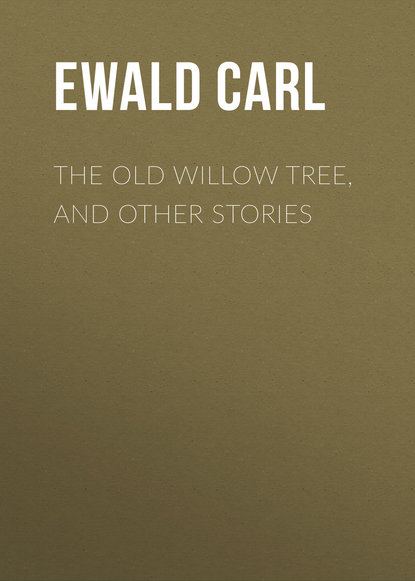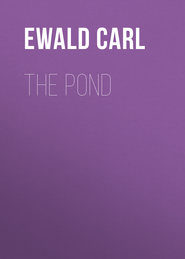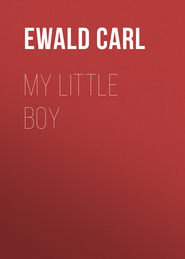По всем вопросам обращайтесь на: info@litportal.ru
(©) 2003-2024.
✖
The Old Willow Tree, and Other Stories
Настройки чтения
Размер шрифта
Высота строк
Поля
"It's exactly as I told you," said the elder-bush.
"When all is said and done, it was I, in a measure, who prepared the romance," said the blackbird. "But, honestly speaking, I prefer things as they were in the old days. Then one could sit here in peace and quiet. Now we run the risk every moment of somebody or other coming and sticking up his head and saying, 'Well, I never!' or 'Did you ever?' or 'O-oh!' or 'A-ah!'"
"Never in my born days have I known anything like it," said the nearest poplar. "Did you hear how the squire talked of his proud and stately poplars? We, who have stood guard along the road to his manor-house, summer and winter, year after year, all equally straight and still … quite ordinary poplars, he called us! And then that disgusting, vulgar willow-tree!.. That rotten old stump!.. And he's a relation of ours into the bargain!.. For shame!"
"For shame!.. Shame!.. Shame!" whispered the poplars along the avenue.
11
One winter's day, a storm came, till all the trees in the wood creaked and crashed. The wind howled and tore down the avenue and all the proud poplars swayed like rushes. The snow drifted till sky and earth became one.
"Now I can hold out no longer," said the old willow-tree.
Then he snapped, right down by his root. The iron hoop which he wore round his head went clattering down the frozen road. The railing tumbled over. The garden up at the top was scattered by the wind in every direction: the black-currant-bush and the strawberry-plant, the mountain-ash and the little oak, the dandelions and the violets all blew away; and nobody knows what has become of them since.
The earth-worm lay just below and wriggled:
"I can't stand this," he said. "Let them chop me into two … into three… But this is worse. The ground is as hard as iron: there's not a hole to creep into. And the frost bites my thin skin. Good-bye, all of you: I'm dying!"
12
In the spring, the stump of the willow-tree was cleared away. But the squire ordered that no new tree should be planted in its stead. Every time he drove past, he told the people with him about the curious old willow-tree that had had quite a garden in his hollow head.
And the wild rose-bush told it to the birds, who sang the story all over the world. The oak could never learn to understand it and the elder-bush said that he had understood it all the time. The blackbird was caught in a snare and eaten.
But the poplars, stately and indignant as ever, still stand and whisper along the avenue.
THE MISTLETOE
1
Just outside the fence of the keeper's garden stood a crab-apple-tree, with crooked branches and apples sour as vinegar.
She had once stood in the middle of a thorn-thicket. But the thorns had died and rotted away; and now the apple-tree stood quite alone in a little green glade.
She was old and ugly and small. She could only just peep over the hazel-hedge into the garden, at the orange-pippin-tree and the russet-apple-tree, who stood and gleamed in the autumn sun with their great red-and-yellow fruit and looked far more important than the crab-apple-tree.
Every morning, the keeper's dog came jogging round the fence to take a mouthful of fresh air and a little exercise. He had lost all his teeth and could see only with one eye. He always stopped for a bit when he came to the crab-apple-tree and rubbed himself against her:
"It's the fleas," said the dog.
"Pray don't mind me in the least," replied the apple-tree. "We have known each other since the days when you were a puppy and the keeper used to thrash you with his whip when you wouldn't obey. I am always delighted to do an old friend a service. By the way, you have plenty of apple-trees nearer at hand … in there, I mean, in the garden. Why don't you rub yourself against them?"
"Heaven forbid!" the dog. "All honour to the real apple-trees; they are right enough in their way; but you are so beautifully gnarled."
"I am the real apple-tree," said the tree, in an offended tone. "Those in there are only monsters, whom men have deformed for their own use. They grow where the keeper put them and let him pluck them when he pleases; I am wild and free and my own mistress."
The dog rubbed himself and shook his wise old head:
"You ought really to have entered men's service too, old friend," he said. "It's good and snug there. And what else is to become of old fogeys like you and me? Of course, we have to do what is required of us; but then we get what we want in return."
"Perhaps it's there you got your fleas?" asked the apple-tree, sarcastically. "For you certainly have all you want of them!"
But the dog had already jogged back into the garden and did not hear.
2
Soon after, a blackbird came flying and perched on one of the tree's thickest branches. He flapped his wings and then rubbed his beak against the branch.
"You're welcome," said the apple-tree.
She knew that the blackbird always did like that, after he had been eating, and she was a courteous tree, when no one offended her.
"Thank you," said the blackbird and went on rubbing his beak.
"You're working awfully hard to-day," said the tree.
"There's a stone on the side of my beak," said the blackbird. "It's there as if it were glued fast; and I can't get it off, however much I rub."
"What have you had to eat?"
"I had some beautiful white berries," said the blackbird. "I never tasted anything so good; and I am a judge of berries, as you know. It was somewhere ever so far away; and now I've been flying for a day and a half with this silly stone. Every moment, I've been trying to get it off… Ah, there it goes, thank goodness! Now it's on you, you old Crab-Apple-Tree. You'll see, you will never get rid of it."
"Just let it be," said the apple-tree, gaily, "and don't bother about me. It'll take to its legs, right enough, when it begins to rain and blow."
The blackbird flew away and the crab-apple-tree stood sunk in her own old thoughts, with the stone on her branch. In the evening, it came on to rain violently and the stone slipped slowly down the wet branch, until it reached the underside.
"Now it will drop," thought the apple-tree.
But the stone did not drop. At night, a terrible storm broke loose and all the trees creaked and swayed to and fro. Inside the keeper's garden, the orange-pippins and the russets fell to the ground by the bushel. But the stone stuck where it was.
"Well, that's odd!" thought the crab-apple-tree.
And, when the dog came jogging along in the morning, the tree told him of the queer thing:
"What sort of a chap can it be?" she asked.
"I expect it's a flea," said the dog and rubbed himself. "One can never get rid of them. Does it hop all over you? And bite you?"
"Certainly not," replied the apple-tree. "Last night, it slipped down quite gently to the underside of the branch; and, for that matter, it does me no harm."
"Then it's not a flea," said the dog.
3
Autumn came and all the good apples in the garden were gathered and stored in the loft. There was no one who cared about the crab-apple-tree. Her apples remained on the branches till they fell to the ground, where they lay and rotted. But the tree was well-pleased with the state of things. She knew that little crab-apple-trees would sprout from them and that was why she had put them forth.
Then winter came, with frost and snow. The old dog lay all day under the stove in the parlour. The crab-apple-tree stood outside in the snow, with the queer stone under her branch.








